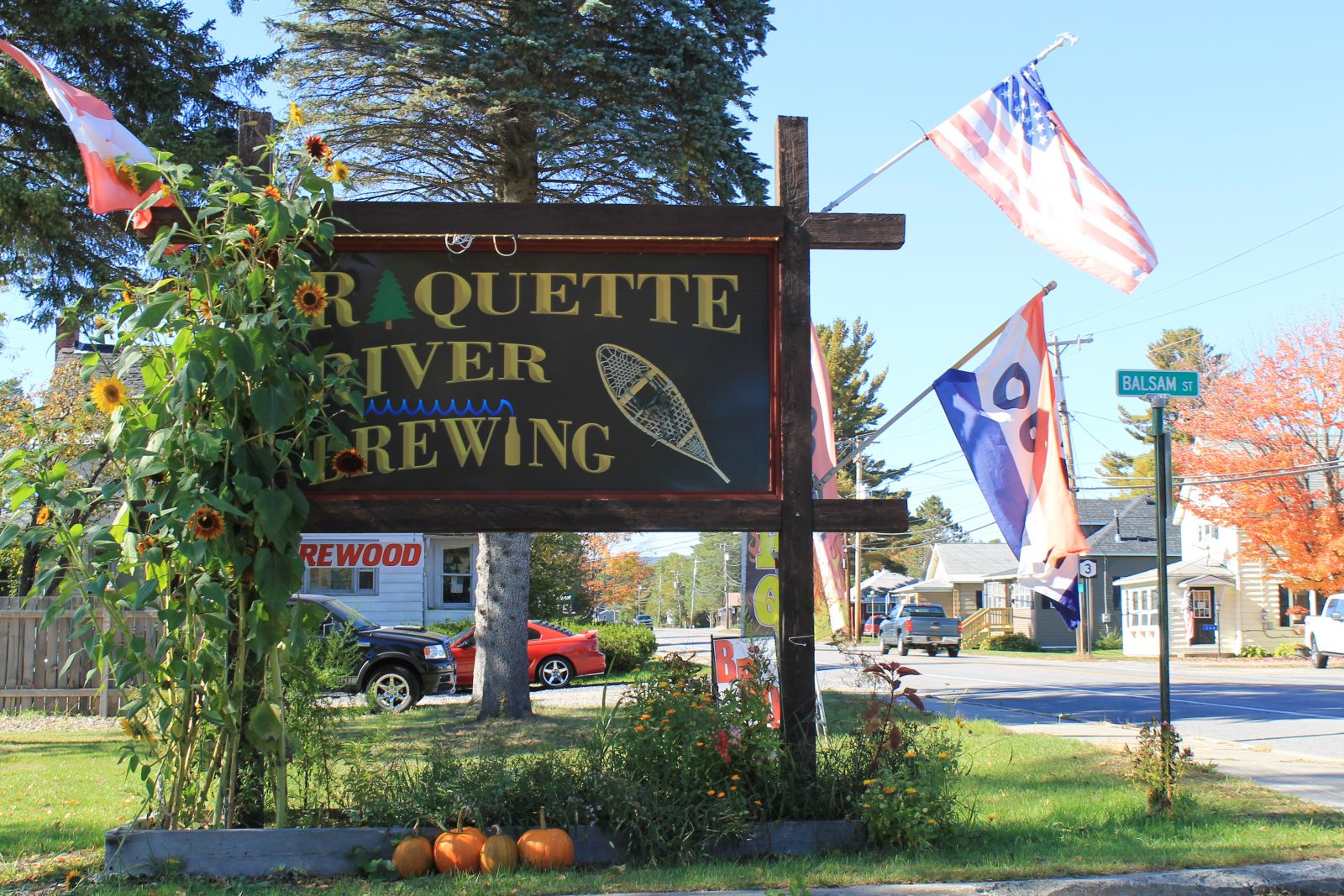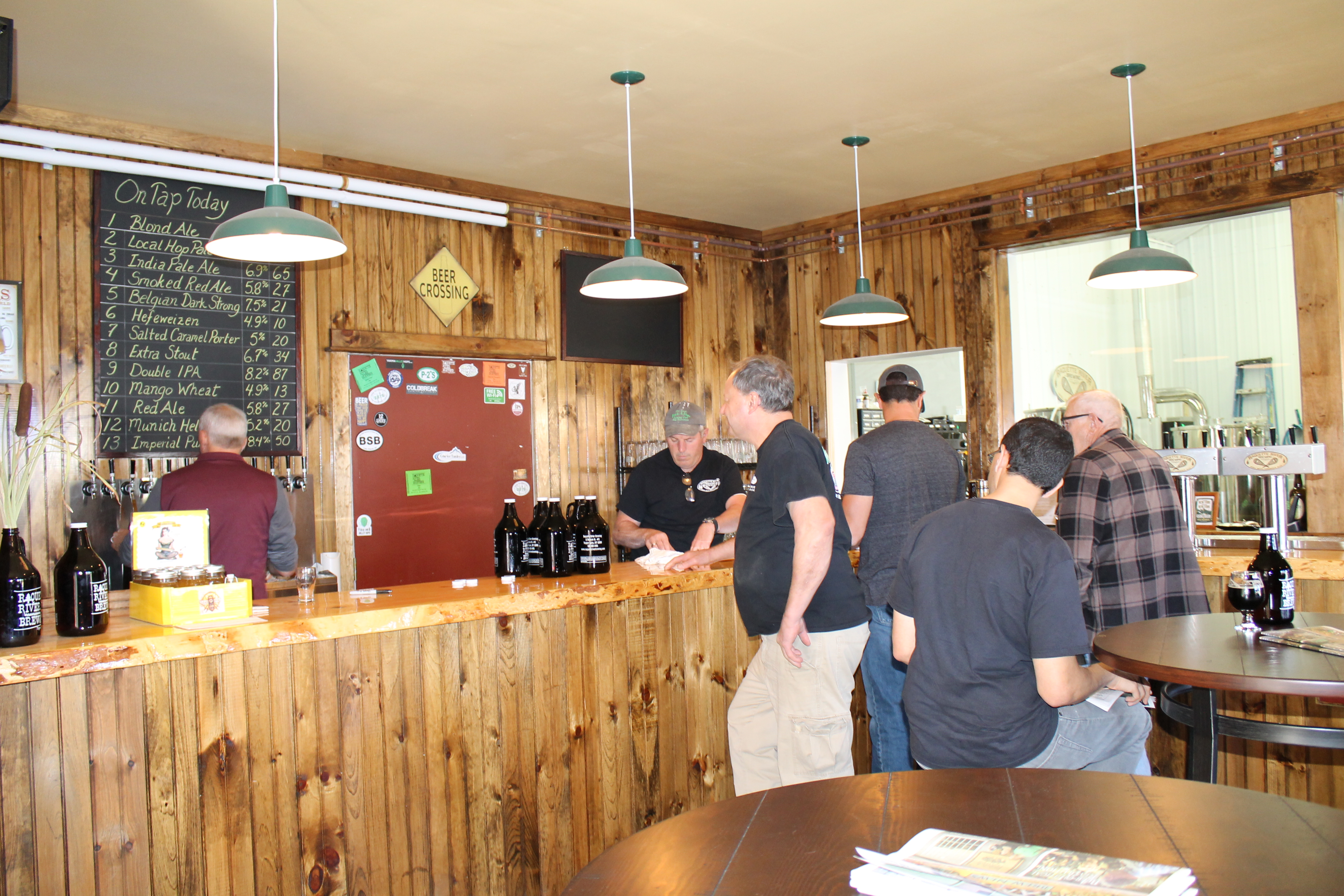
Now on tap: Local Hop Pale Ale
If you stop by Raquette River Brewing this fall, you'll have a chance to try a once-in-a-lifetime beer.
The brewery's Local Hop Pale Ale is brewed using hops sourced from throughout the community.
Some hops were growing on a fence at the brewery, and brewery co-owner Mark Jessie had some growing at home, and Mark and his fellow brewers wanted to make use of them. But it was pretty clear that it wouldn’t be nearly enough to brew a full batch of beer, so they put out a call on Facebook to all the fans of the brewery. They asked everyone to cut down any hops growing in their backyards and bring them to the brewery.
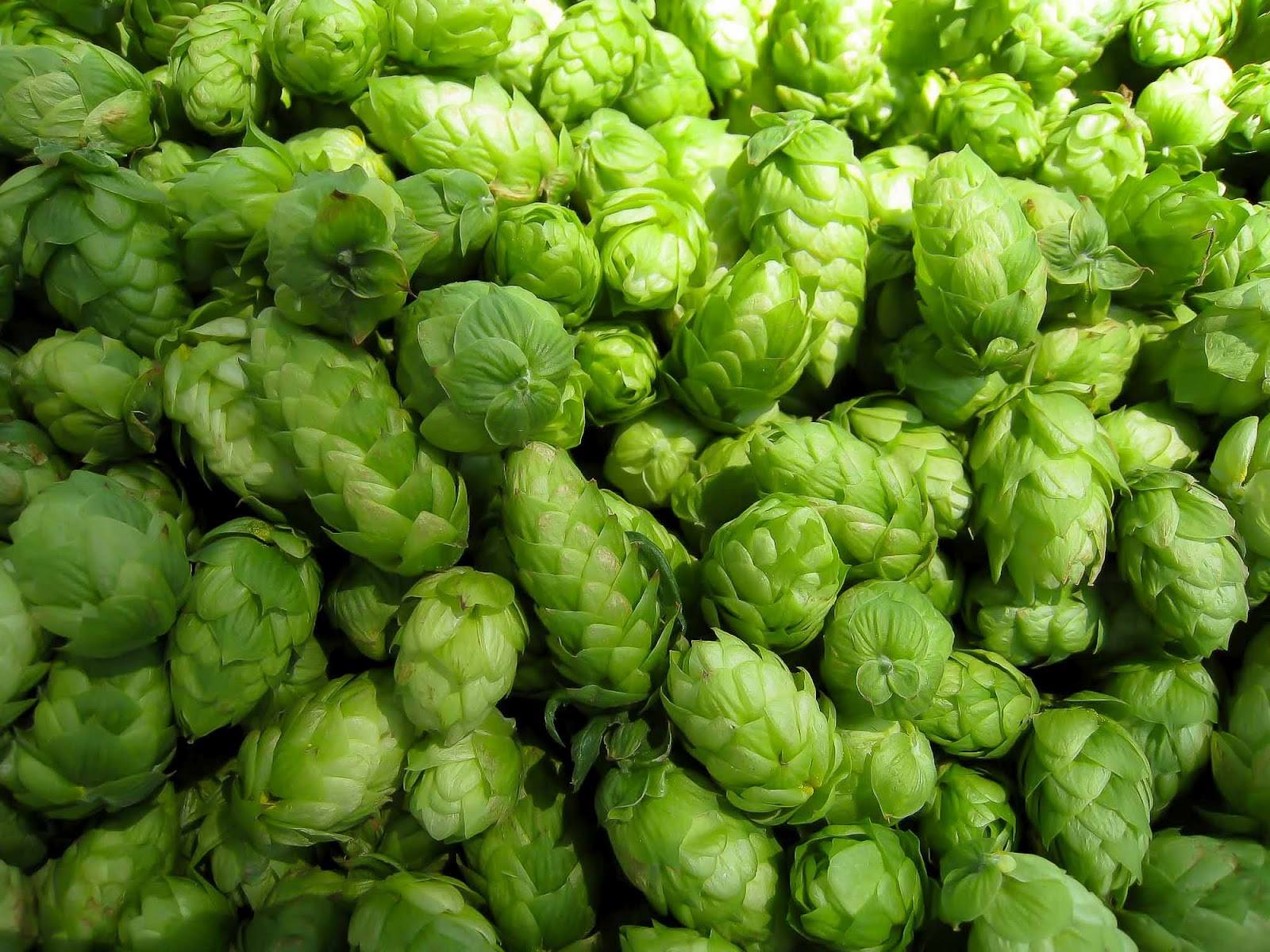
Hops don’t grow in the wild on their own here, but they have been planted in many places and they're perennial and tend to last a while once they've been planted. Lots of people use them for shading and screening in their yards, since they grow tall.
Hops grow well in the climate of the Adirondacks. New York used to be the leader of the hops industry more than a century ago, supplying most of the hops used throughout the country. But Prohibition and a scourge of fungus ended that. The state and regional agricultural organizations are now working on programs to encourage people to grow more hops, and it's slowly taking off, but there isn't enough yet to support the brewing industry.
Collecting hops
In the end, Mark and his fellow brewers collected about 12 pounds of hops from people who wanted to share. Collections came from throughout Tupper Lake, and people even brought some in from Massawepie, which is in the Tupper Lake region past Piercefield.
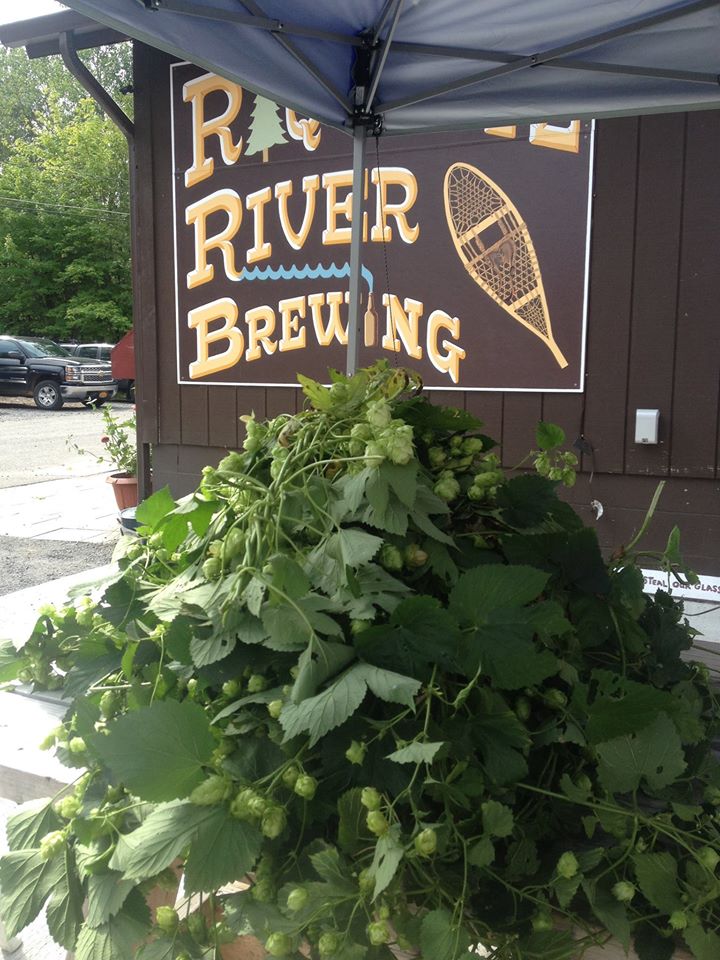
And to continue with getting the community involved, they piled all the bines together on the picnic tables outside the brewery and invited people to come down to the brewery and help them pick the hops cones off the bines. Everyone who helped out got a free pint of beer.
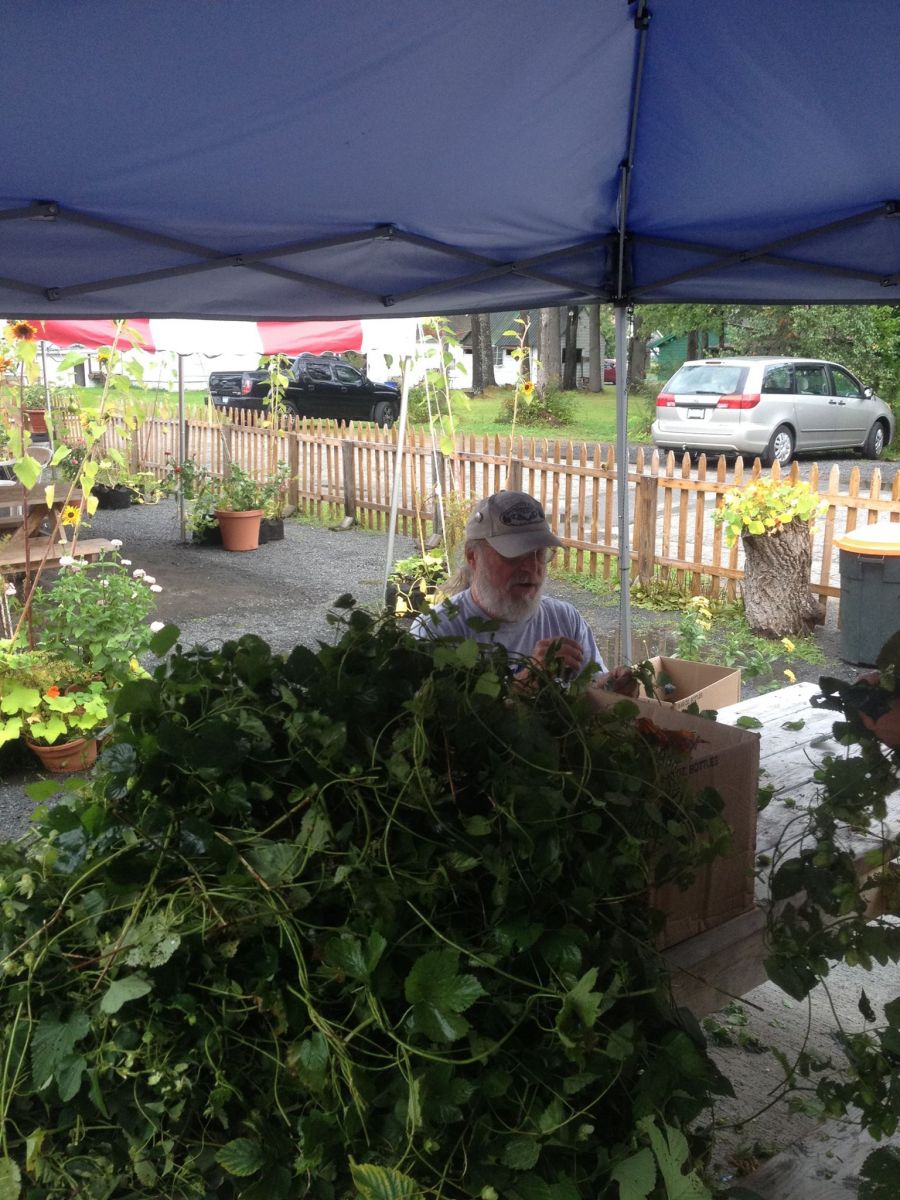
Mark said they had a great response to the request. People had a great time hanging out and plucking cones, because it made them feel like they were a part of this community beer. And it was educational too: Tourists who stopped by asked what the plants were, and they learned about hops and the brewing process.
The tough part about this fun idea was that they didn't know how much and what kind of hops they would end up with. In the end, the 12 pounds were mostly cascade and nugget varieties, but some of the people who brought hops in didn't know what kind of hops they had. The guys did their best to identify them on sight and smell, but they couldn't be sure about some of them.
There's a wide range of acidity in different hops varieties, and it dictates what kind of beer you use the hops to brew. So Jack Lewis, RRB's head brewer, waited until all the hops were picked and ready to go before he weighed them and assessed what he had to work with. He decided it made sense to go with a pale ale because it's a middle-of-the-road kind of beer, as opposed to something like a lighter type of beer like a blonde or something heavier like an IPA. Since there wasn't enough for a full batch of beer, Jack used traditional bittering hops early in the brewing process. He used all the local hops later in the boil, which is when the hops give the most flavor to a beer.
Jack wrote the recipe the next morning, and his son Alexander brewed it up.
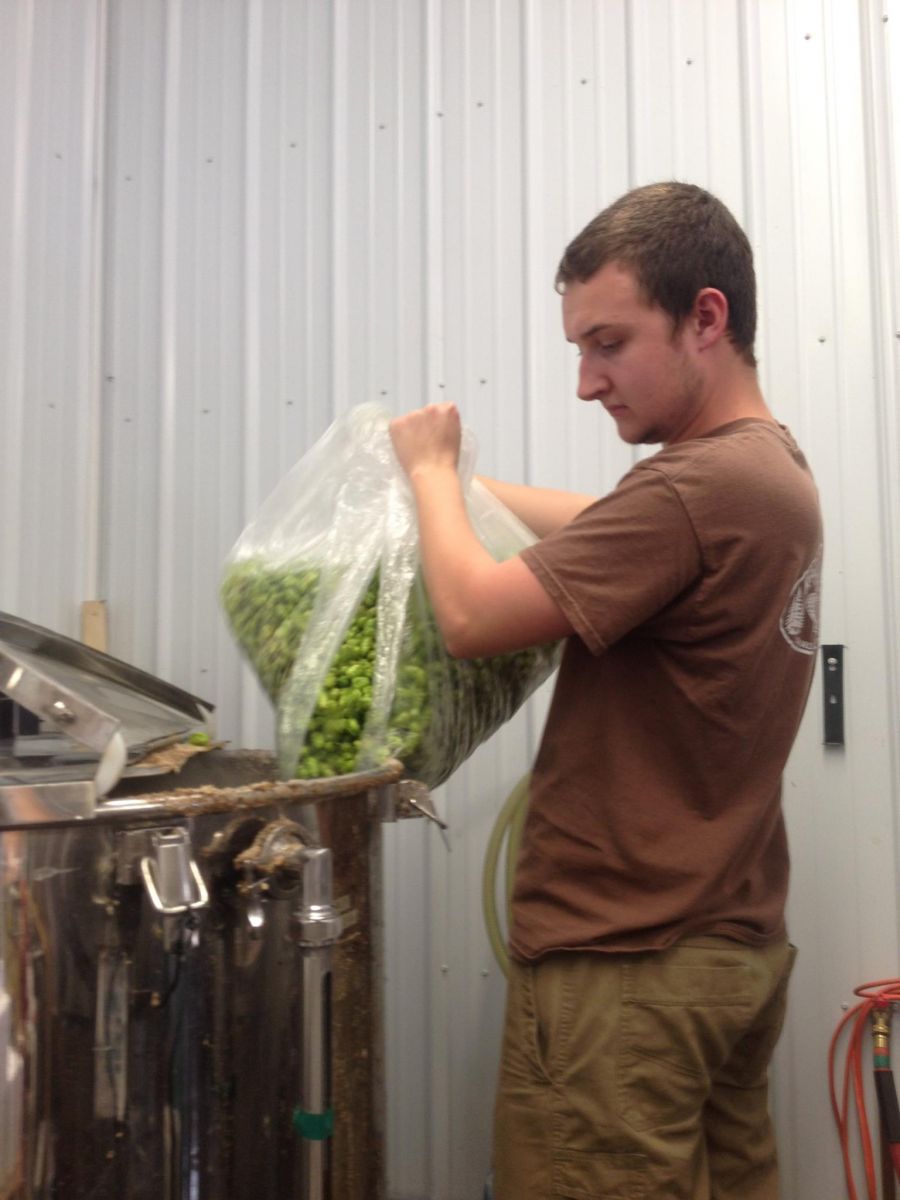
Local Hops Pale Ale
As the beer brewed, people came in asking if it was ready yet.
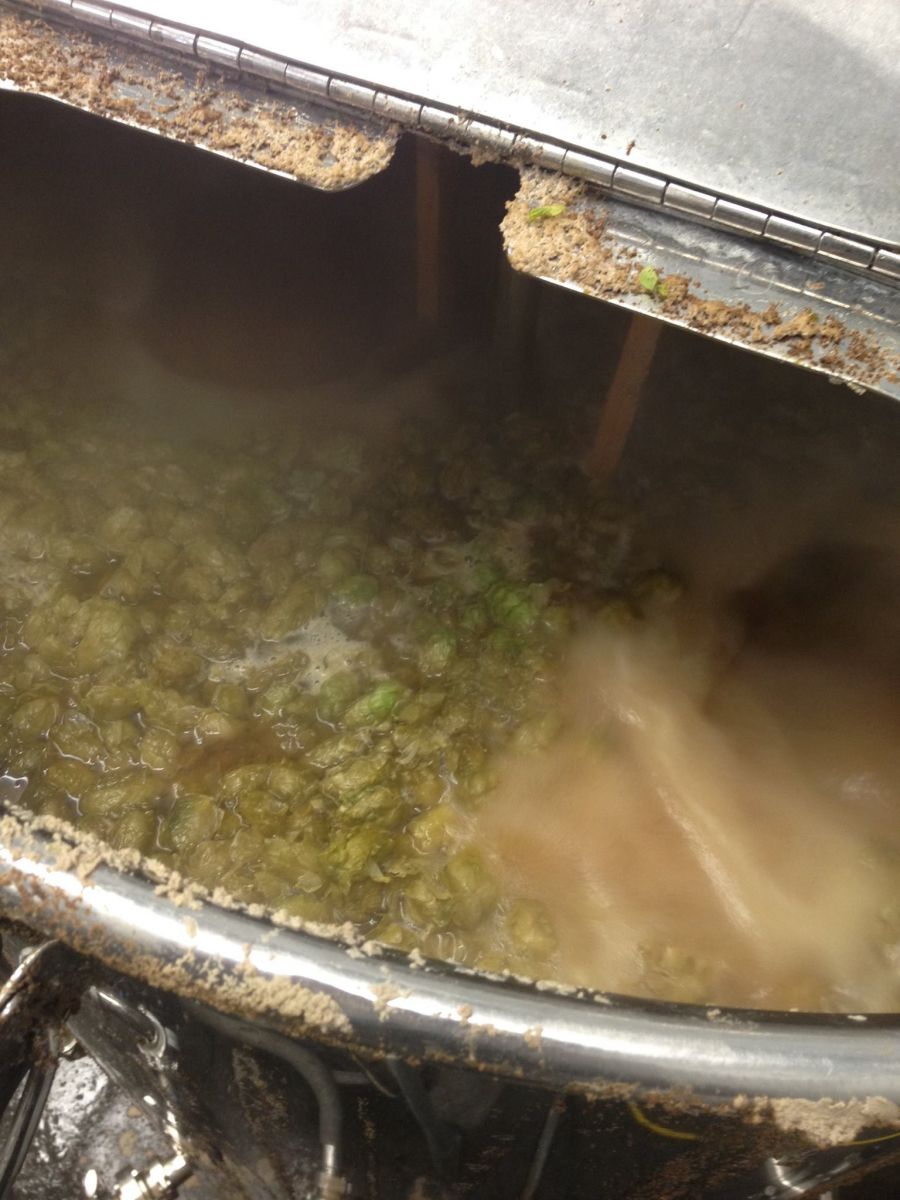
After two weeks or so, it was finally ready to go on tap. The finished product is available now. It's light yet flavorful, and you can definitely taste those local hops!
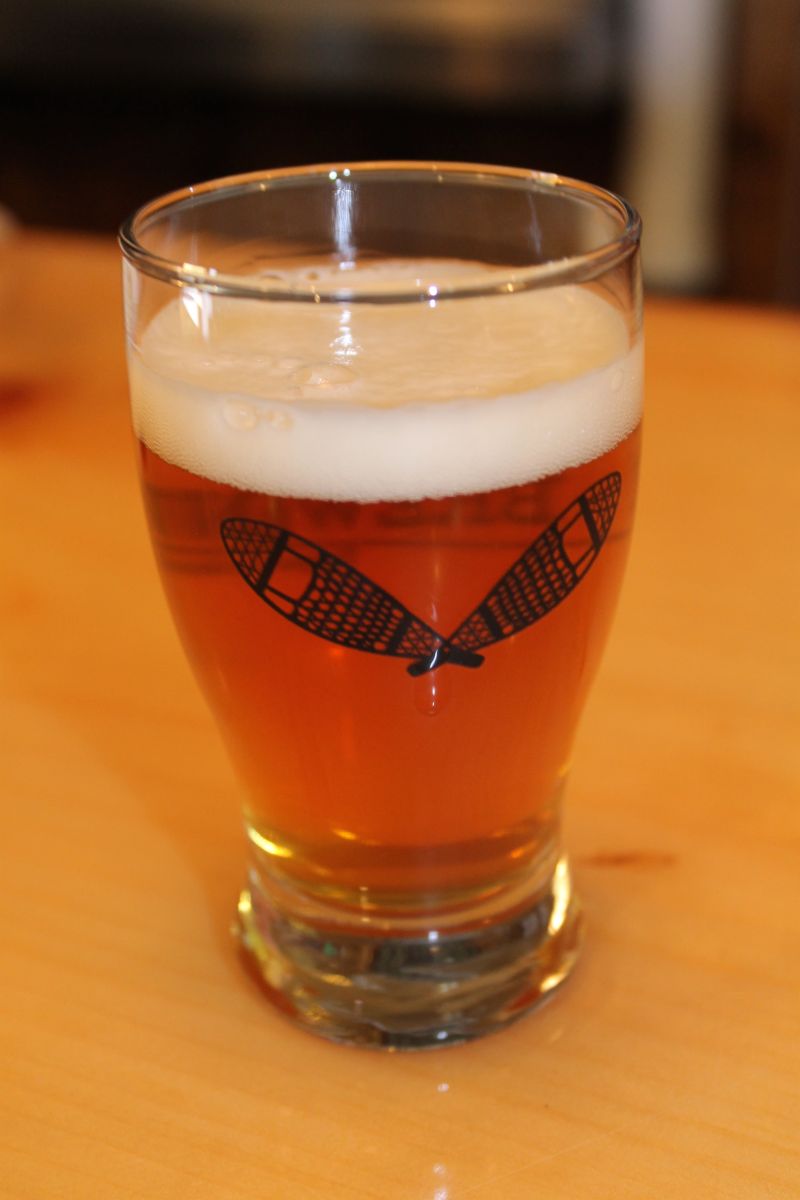
Stop in to the brewery to meet Mark, Jack, and the rest of the crew and to taste this unique beer. You can get a taste, try it in a flight, or buy a small or large growler full.
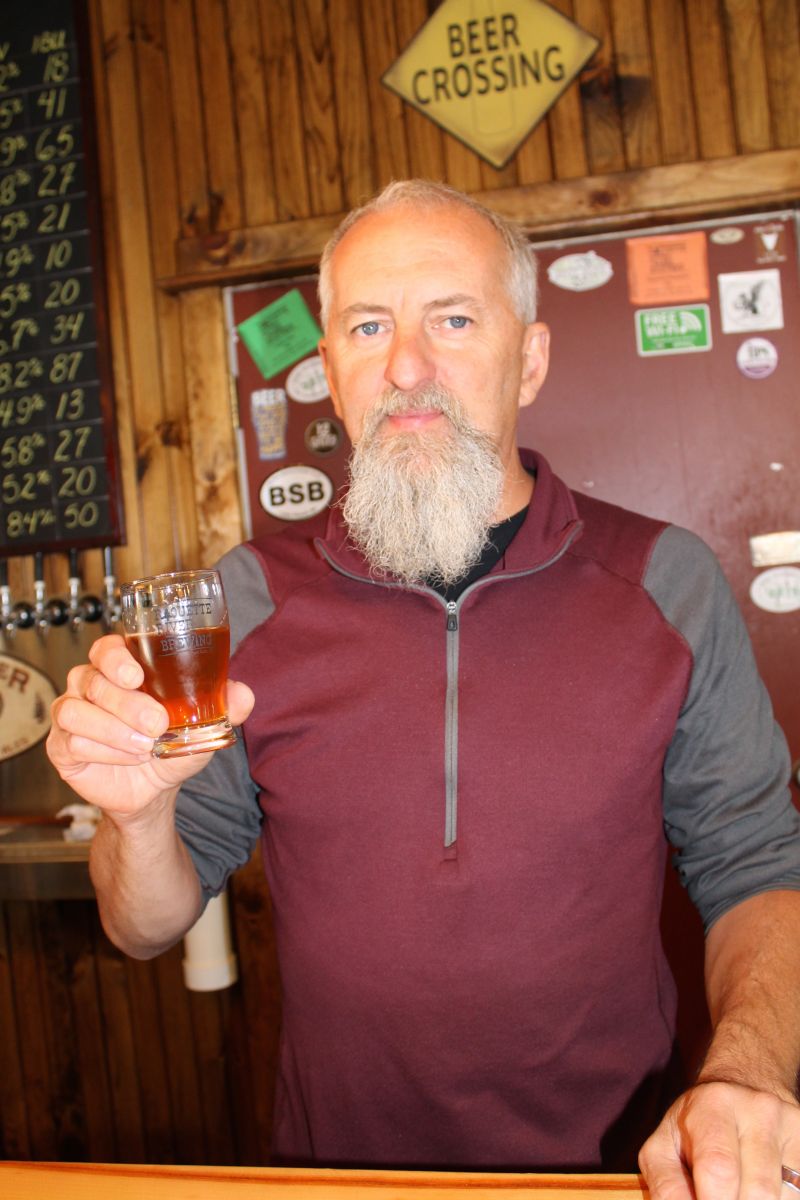
A new tradition
This isn't the first time the Raquette River Brewing guys have done this kind of thing. They did it last year, too, but kept it a little quieter. Next year, they hope to put out word a little earlier to give people more time to collect their hops, and to plan around coming to the brewery to help pick the cones. They hope the whole thing becomes a fun new tradition that will continue to grow each year.
But the cool thing is that, even though each yeah they'll brew with local hops, there will never be the exact same combination of hops that are brought in. So each year, the beer will be a brand-new, once-in-a-lifetime beer.
Other options for imbibing
The brewery recently expanded to a four-barrel system from a two-barrel, and Mark said the transition was pretty seamless. The new, bigger system allows them to have a ton of options on tap right now.
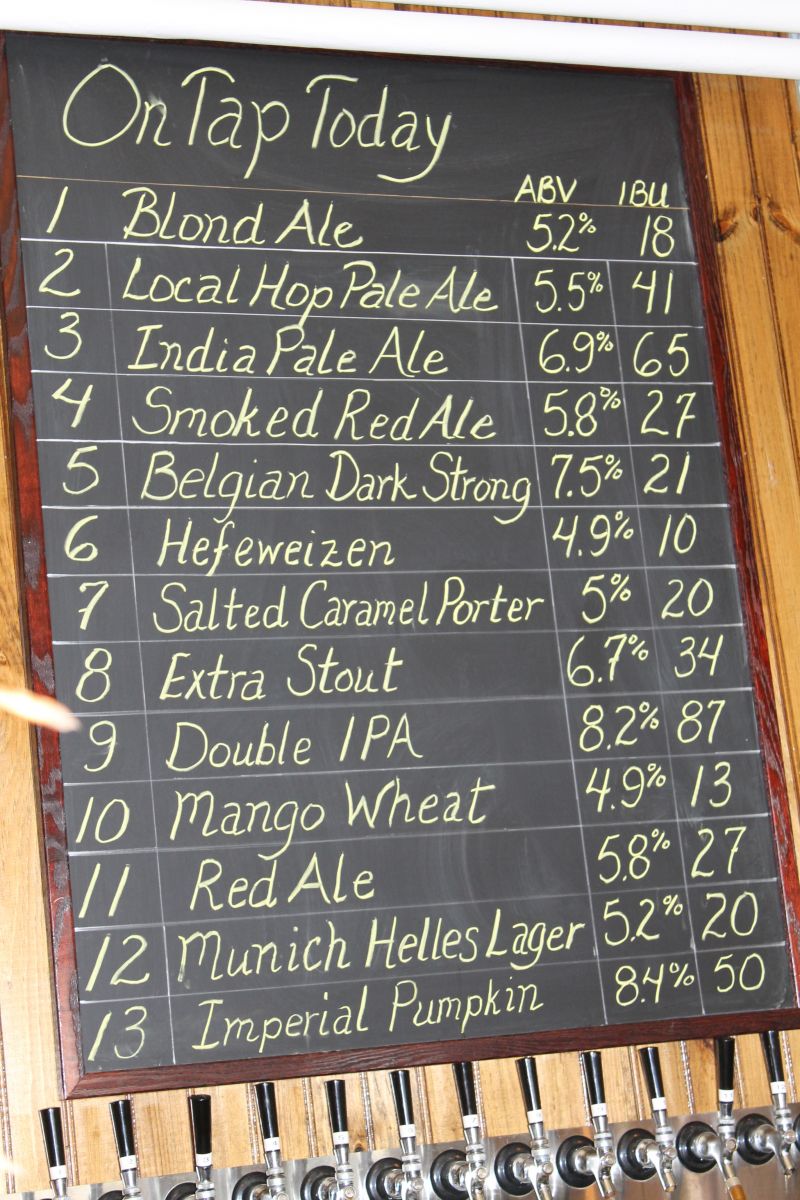
That Imperial Pumpkin might catch your eye. It's the only option on there that's a seasonal offering — they do one each year around this time — and it's super popular. They had people coming in in the middle of the summer asking it they had the Imperial Pumpkin available yet. Yeah, it's that good.
Mark notes that it's a fun one to brew, too. Brewers call it a "big beer," one with high gravity that requires a lot of ingredients and steps in the brew.
The Salted Caramel Porter is one that Mark isn't sure about doing again. He heard about it while on vacation in Connecticut and decided to give it a try in lieu of a batch of the normal Maple Porter that they keep on tap. The Maple Porter is pretty popular, though, and he's had a lot of people asking about it.
The Mango Wheat beer used to be seasonal, but it's been so in demand that they've decided to keep it on tap regularly.
Not just a tasting room
The Raquette River Brewery is not just a tasting room, it's also a great place to hang out. There are tents over the picnic tables outside, so you can hang out there and have a few pints regardless of the weather. There's always a few people to meet there, even if it's the middle of the day on a weekday.
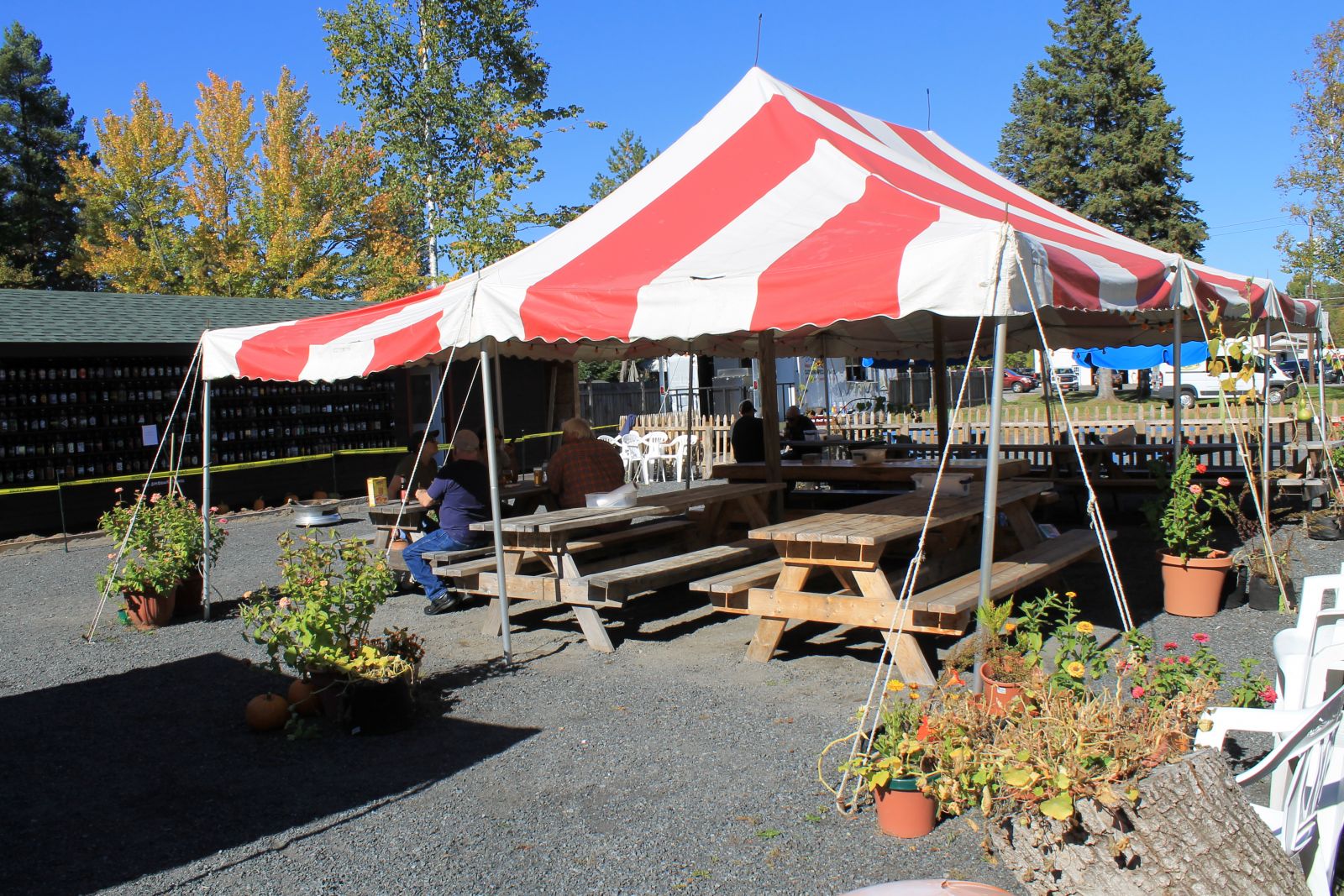
And when the weather cooperates, Mark tries to have live music in the yard on Fridays. Keep an eye on their Facebook page to find out when they'll have live music throughout the fall.
You can't miss it; just look for the Raquette River Brewing sign as you head into town on Route 3!
